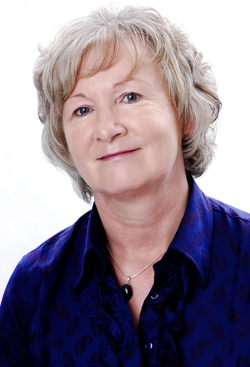• Insight and understanding of oneself, with greater self-awareness.
• Challenging negative beliefs and unhelpful thought processes.
• Increased acceptance and appreciation of self.
• Increased emotional intelligence resulting in positive change.
• Learning to 'let go' and forgive past hurts.
• Development of skills and abilities that require self-management.
• Improved motivation towards actions that are good for self.
• Understanding of others and why they act as they do.
• Increased appreciation and care for others.
• Improvement in relationships with others.
• Changing of relationship with family, friends and others.
• Making amends for past negative actions.
In the counselling sessions, a client will be able to discuss and explore personal difficulties, any distress they may be suffering or general dissatisfaction with life and purpose. Specific examples could be for relationship difficulties, family problems or bereavement. Counsellors usually work for a mutually agreed period of time per session. This will usually be limited to 50 to 60 minutes per visit in order that the therapist and you can maintain both energy and focus to get the most out of each session.
The number of sessions required can vary from client to client, and depends mainly on the issues brought to the counselling work.

Human happiness and well-being comes from fostering and maintaining a healthy belief system of self and others. We relate to others with the same degree of love, compassion, respect and dignity as that which we afford ourselves. Living in this way brings us the inner peace and strength needed in order to be better able to cope with difficulties that arise in our everyday lives.
Negative life experiences, or what is commonly termed 'baggage', can spill over and influence our current day thoughts, feelings and decision-making. This can very often result in a sort of psychological and emotional paralysis or feeling of being stuck, preventing a person from moving on to live a fulfilled and happy life. We all get 'down' from time to time, but if a cycle of discontent, confusion, unhappiness, anger, loneliness, sadness or other negative emotions persist over a long period of time, then there is a need for change – a need for counselling.
Effective practicing therapists are constantly developing their counselling skills and knowledge base and an important aspect of my ongoing training is in the use of CBT or Cognitive Behavioural Therapy. CBT practitioners believe that our thought patterns influence the way we feel and in turn how we behave. (e.g. an advert on television for chocolate or cake will invariably result in a trip to the shop or kitchen fridge!) This therapy explores our individual thinking style and challenges our perceptions and consequent belief systems. These in turn are measured up with the evidenced-based reality of a specific issue.
Are you feeling down, alone, anxious and weighed down with issues in your life?
Do these issues mean you have difficulty living your life to the full?
Do you feel held back by a past or present situation: stuck and unable to make
the decisions that benefit you and those close to you?
Do you find it hard to live in the here and now; bogged down with worries from
the past or about the future?
Are you looking for a greater understanding of your life: wanting to grow and
develop to your full potential?
If you can answer yes to any of the following questions, then counselling may be beneficial for you. At Insight, counselling works towards a respectful, non-judgemental and non-directive therapy, focussing on growth through self-development.
• Abuse (emotional, physical, sexual)
• Anxiety
• Bereavement/Loss
• Bullying
• Confidence/Self-Esteem issues
• Couple's Counselling
• Depression
• Gay/Lesbian issues
• Overeating/Weight Management Issues
• Relationship issues
• Sexual identity/orientation
• Stress
• PTSD (Post Traumatic Stress Disorder)
• Work-related problems
